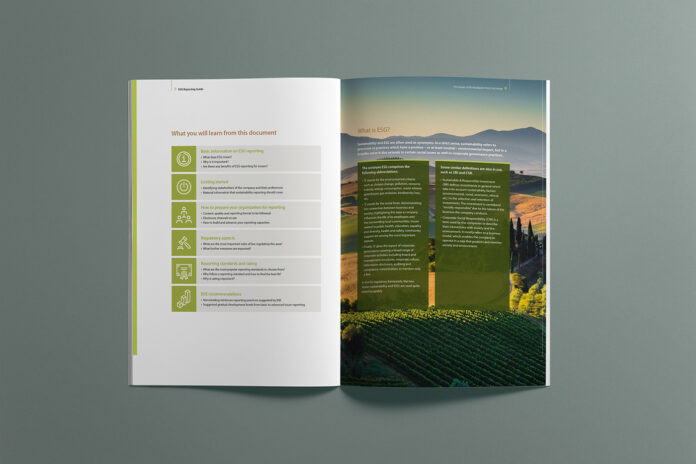
Climate change is a global issue with substantial ramifications that extend to the business sector. The various risks related to climate change have always impacted the way companies do business; at the same time, these risks can also disrupt operations, thus impacting productivity, performance, and overall competitiveness. There are numerous examples we could use to illustrate the effect of climate change on business performance; for the purpose of explaining a proposal recently floated by the United States Securities and Exchange Commission (SEC), we will mention South Florida businesses affected by Atlantic Hurricane Seasons that seem to get more intense and destructive each year.
In March 2024, the SEC published a proposal for a rule that attempts to reach a standard of reporting with regard to the risks companies face through climate change. This proposed rule involves a tentative change to Regulations S-K and S-X, which is all about the reporting requirements of registered companies. These two regulations cover everything in relation to business communications that are of a public nature, and this means descriptions as well as financial statements that must be presented to investors. There are two releases in this proposal: 33-11042 and 34-94478.
The business entities affected by this rule are those that are already expected to file disclosures related to Greenhouse Gas (GHG) Protocol and the Task Force on Climate-Related Disclosures, which was formed by the SEC a little over a year ago. This goes back to recommendations that have been made during Group of Seven (G7) summits since 2018, and they were underscored at the United Nations Climate Change Summit in Glasgow last year. In essence, the SEC agrees with the G7 recommendation of implementing climate change reporting within environmental, social, and governance (ESG) disclosures.
Understanding ESG Reporting

Ethical governance, social responsibility, and sustainability are at the heart of ESG reporting. The domestic and foreign business entities that register with the SEC are subject to ESG disclosures because they provide information that investors are interested in, particularly the institutional kind.
Let’s say a boutique investment banking firm manages an exchange-traded fund (ETF) focused on S&P 500 companies known for giving back to the community, operating in an ethical manner, and promoting sustainability. The ETF manager likes what she sees with Carnival Corporation, a Miami-based cruise giant that has been providing extensive ESG disclosures since 2010, but she is concerned about something her research associates have spotted. Carnival is heavy on Caribbean routes, and the company has been increasingly facing cruise cancellations, delays, and modifications with each Atlantic Hurricane Season.
This is a valid concern for an ETF manager, and she sees that company executives comment on this matter when financial statements are published, but these comments are generally made after the fact. What this Wall Street banker would like to see is a good faith disclosure by Carnival about how the hurricane season can impact its operations; in other words, she wants to go beyond the company’s GHG emission disclosures because she has an ETF prospectus to write, and she knows that prospective investors will be looking for this information.
More intense weather systems in the tropics are part of climate change, and this is an issue that Carnival executives should warn investors about. This is the gist of the aforementioned SEC rule proposal, and it would be safe to say that it has been designed with institutional investors in mind. Should the SEC proposal be implemented after the public commenting period, which will come to an end on May 20, ESG disclosures about climate change risk would be included not only with filings of financial statements such as 10-K reports but also upon initial registration with the SEC.
What Climate Change ESG Disclosures May Look Like

With this new SEC rule, the Form 10-K annual report will get a new section with the following:
- How risks related to climate change would impact the company’s outlook and strategy. We already used Carnival Cruise Lines as an example of operational risk caused by tropical storms, but what about companies such as World Fuel Services, which manages a global gasoline and diesel supply chain from Miami?
- How the company plans to face future challenges related to climate change. Imagine an insurance company that decides to tap into the Miami renters coverage market, which tends to be overwhelmed with claims each time a hurricane makes landfall around South Florida.
- How the company manages GHG reporting and how it plans to lower emissions or reduce its overall carbon footprint. Here we can think along the lines of Office Depot, a major retailer based in Boca Raton, and the products it offers. A positive set of ESG disclosures would be for the company to set a goal of filling 50% of its inventory with products made from recycled materials, according to sosinventory.com.
In addition to the new ESG disclosures section of the 10-K report, companies may also need to publish statements related to climate change risk when they register with the SEC or when they file for an initial public offering (IPO).
Thinking About ESG Reporting Standards

Climate change risk disclosures and ESG reports are still a work in progress. Following the 2018 G7 summit in Canada, the European Union took an early lead on developing ESG reporting standards on a global level, but it looks like the SEC has decided to go its own way with this proposed rule, at least for the time being. We are still in the early days of this proposal.
What we know is that ESG reports will have to be audited and certified in order to ascertain their validity, and this is where accounting firms, auditors, analysts, actuaries, and underwriters need to come together and start defining standards. It will probably take a few years before this process is organized and finalized. Accountants who have reviewed the EU directives and the SEC proposal complain that the latter needs to be trimmed down from its 500 pages; moreover, they also have questions about the methodology they should use when measuring CO2 emissions.
There is no question that SEC regulators will have to strongly consider the public comments and numerous letters they are receiving on this matter, but we can bet that ESG reporting and disclosures on climate change will continue to expand because they are part of the information that modern investors and shareholders demand from companies they are interested in. EU entities registered with the SEC seem to be better prepared in this regard, but they have the same concerns about standard reporting practices as well as the correct way to measure CO2 emissions within their respective industrial sectors.











